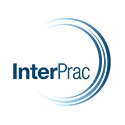Trauma Cover is also commonly referred to as ‘Critical Illness’ or even ‘Recovery’ Cover.
Essentially it is a lump sum payment made upon the diagnosis of you suffering from a major medical trauma, the most common of which are heart disease, heart attack, stroke or cancer.
We all get sick sometimes, that’s life, but having a serious illness such as cancer or a heart attack is a different matter. Trauma cover is designed to help you in your recovery and provides the lump sum payment for you to decide how to best utilise the funds; whether it be for medical expenses or treatment costs, debt repayments, additional care and rehabilitation, lifestyle modifications, cash reserves, or simply allow you to take some time off work to focus on you and your recovery.
The Facts
● In 2010, an estimated 114,000 new cases of cancer were diagnosed in Australia
● More than 60% of cancer patients will survive more than five years after diagnosis
● Two out of every three people that suffer a stroke will be alive one year later
● About 88% of stroke survivors live at home, most of them with a disability.
● Stroke costs Australians an estimated $2.14 billion every year
● The average cost of cancer treatment is $47,000
Could you and your family cope financially with the cost of medical treatment and a recovery period with little or no income? The good news is that Trauma Cover can provide that lump sum to help cover those costs.
Despite this, many Australians don’t take out Trauma Cover, often due to some misconceptions;
“My private Health Cover will cover me”… Health Insurance helps with medical treatments and hospital expenses, but it does not cover some specialist therapies, ongoing treatment needs or the immediate care that is often required.
“It doesn’t matter, I’m not the main bread winner”… Childcare and home help provided by a ‘stay at home’ parent could be worth more than $75,000 per year. You don’t have to be employed to take out Trauma Cover.
“I have Total and Permanent Disability (TPD) Insurance”… Serious illness doesn’t necessarily result in total and permanent disability. Medical advances mean that is now common for people to recover their original lifestyles and return to employment.
The Basics
A lump sum payment made upon you suffering a serious illness, and in most cases covers cancers, heart disease and stroke. Various options include;
Choice of cover level
- Different companies will provide different policies with different inclusions, meaning cover for additional conditions and usually including advanced payments for early stage cancers.
Premium Options
- ‘Stepped’ premiums increase each year in line with your age, while ‘Level’ premiums remain constant usually until age 65 (at which point they convert to stepped).
- ‘Stepped’ premiums will initially be more economical, however in the long term, ‘Level’ premiums may provide better value for money.
‘Standalone’ or ‘Linked’ Cover
- An option exists to ‘link’ your Trauma Cover to your life insurance benefit. In doing so, if you make a Trauma Cover claim , there will be an equivalent reduction in your life insurance benefit. The ‘linked’ benefit provides a lower prices alternative to the standalone cover.
- The ‘standalone’ option, will keep the Trauma Cover as a separate amount, and not reduce any other insurances in the event of claim.
How we add value
As you can see from the above, Trauma Cover can be as simple or as complex as you like. Our job is to help simplify the process. This first starts with assessing your level of cover required, followed by any other options and inclusions. Different insurers all provide various contracts all with varying terms and conditions. This is often one of the most complex areas of product comparison. As independent financial planners we can tailor this comparison to either focus on the best product with the greatest features or benefits, most economical policy, or best value for money, after all you do get what you pay for.
Another additional consideration is our ability to help expediate any claims that may arise. We have found from experience we are in far greater position to fast track both claims and applications, any medical requirements required etc. In the event of claim, the last thing you want to be worrying about is whether or how your claims is being processed.





